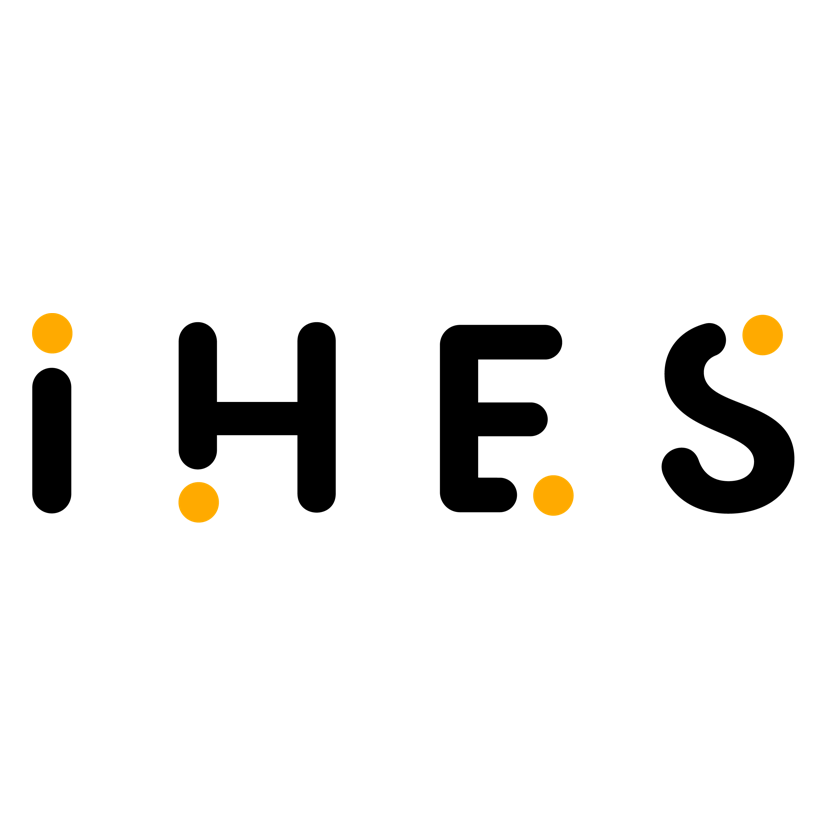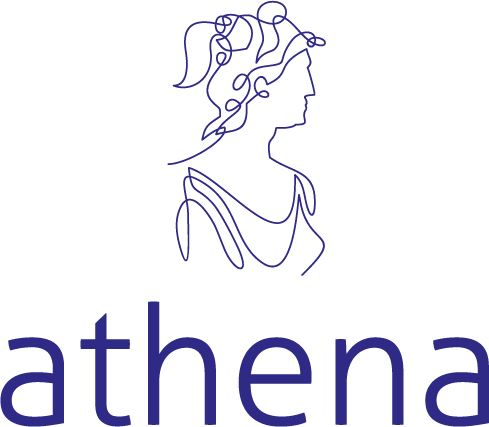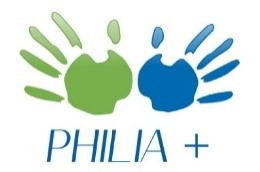Radar em análise: estudo e avaliação dos limites e potencialidades institucionais e locais do programa Radar Social
Assistente de Investigação
O projeto avalia a pertinência e eficácia do programa Radar Social do PRR, que sinaliza pessoas em pobreza e exclusão. A pesquisa analisa perceções de agentes políticos e técnicos para identificar fatores de sucesso, obstáculos e melhorias. Considera novos fenómenos sociais locais e a integração das equipas Radar nas Câmaras Municipais, procurando também rever conceitos e contribuir cientificamente para políticas públicas mais eficazes.
Informação do Projeto
2025-11-28
2026-05-27
Parceiros do Projeto
- CIES-Iscte
- EAPN/Portugal - (Portugal)
- ISS - (Portugal)
Participatory Learning and Action Models for Enhancing Health and Welfare Behavior Change of Families with Disabled
Investigador
The aim is to develop the competences of social educators that are useful for improving the empowerment of families of disabled persons, in a way that is both innovative and inspiring.
The project intends to concretize the process of strengthening and self-awareness of families in line with the document "Implementation guidelines E + and ESC Inclusion and Diversity Strategy" - to overcome social or other difficulties and thus make them fully participate in social life of the EU.
Informação do Projeto
2024-12-31
2026-12-30
Parceiros do Projeto
- CIES-Iscte
- APCC - Líder (Portugal)
- Linköping Municipality - (Suécia)
- UCM - (Espanha)
- Scuola Centrale Formazione ETS - (Itália)
Os níveis da descentralização na luta contra a pobreza: as novas competências municipais na acção social
Investigador
Tendo como base a descentralização de competências para as autarquias locais, o presente estudo tem como objetivo criar um sistema de indicadores para a política de rendimento social de inserção (RSI), servindo de base para a criação de um modelo de avaliação de prestação de serviço desta política. A questão de investigação que irá guiar os nossos trabalhos é em que medida a descentralização de competências contribui para atenuar as causas da pobreza e para melhorar a qualidade dos serviços prestados? A descentralização tem sido vista como mecanismo de combate à pobreza. Várias organizações internacionais, como Banco Mundial, a OCDE e a União Europeia referem o potencial da descentralização no sentido de potenciar as autarquias locais a desenvolverem processos de desenvolvimento sustentável. Vários autores como Von Braun e Groot (2000) e Crawford e Hartmann (2008) argumentam a favor da descentralização, referindo que os governos locais estão mais bem informados das necessidades das suas populações que o estado central. A proximidade facilita a monitorização do cidadão-beneficiário e pode, também, permitir uma mais fácil e eficaz avaliação dos técnicos sociais. No entanto, emergem algumas questões, nomeadamente, o facto de estes possíveis impactos positivos dependerem de dois factores, nomeadamente, os recursos que sejam disponibilizados para as autarquias locais (Jütting e Corsi, 2005 e Harris e Posner, 2022) e, também, a forma como as próprias autarquias executam os programas (Harris e Posner, 2022). Nos Países Baixos, por exemplo, aquando do processo de descentralização de competências (2003 e 2015), o problema que emergiu estava relacionado com o modo de atuação dos funcionários sociais na execução e monitorização dos beneficiários de assistência social, os quais adoptavam uma filosofia assistencialista. E foi através da iniciativa dos municípios que se mostraram abertos a alterar o paradigma do modelo de intervenção social (Oliveira, 2024). Em Portugal, houve qu...
Informação do Projeto
2024-12-10
2025-12-11
Parceiros do Projeto
- CIES-Iscte - Líder
- DINAMIA'CET-Iscte
- EAPN/Portugal - (Portugal)
- Câmara Municipal de Moura - (Portugal)
- CoLABOR - (Portugal)
European master of Advanced Social Work in Health
Investigador
Social work in health is historically associated with a role in health care access, community support and humanization of services. Health care organizations, policy makers and clinicians have developed quality indicators in health care organizations as a premise to higher quality standards in health care. The intervention of social workers extends beyond medical, nursing, education, rehabilitation, and social care services", but also requires attention to be given to the quality of care practices, which includes the delivery of care services at a granular level alongside their organization (mezzo) and their development (macro). In addition, contemporary health care requires new technological advances, to ensure that are delivered in a way that recognizes the need of individuals, but also address inter- and transdisciplinary dimensions. Recent years have seen increasing integration of health and social work systems requiring skilled practitioners able to navigate this technological world. This proposal aims to respond to these challenges, developing a future Erasmus Mundus Master Programme on Social Work in Health. The consortium is composed by Iscte – University Institute of Lisbon (Portugal, Coord), University of Valencia (Spain), Royal College of Surgeons in Ireland/University of Medicine and Health Sciences (Ireland), and Robert Gordon University, Scotland (United Kingdom). The aim is to develop an educational master programme, focusing the development of theoretical, methodological, and instrumental skills in students to work in health and care at micro, mezzo and macro level in the context of public health, policy, leadership, management and evaluation. We seek develop a 2nd cycle programme that meets the demands of today's society, highly marked by digital transition, sustainability and new epidemics that affect the health and well-being of every citizen.
The future Master program will be an innovative bet, combining specialized training to promote le...
Informação do Projeto
2024-11-01
2026-01-31
Parceiros do Projeto
- CIES-Iscte
- RGU - (Reino Unido)
- UV - (Espanha)
- RCSI - (Irlanda)
IHES - Inclusive Higher Education Systems for students with intellectual disabilities
Coordenador Local
Informação do Projeto
2021-12-01
2024-05-31
Parceiros do Projeto
- CIES-Iscte
- UPO - Líder (Espanha)
- UNIFI - (Itália)
- PIXEL - (Itália)
- ULS - (Irlanda)
- Asociación Paz y Bien - (Espanha)
University Goes Digital for a Sustainable Global Education
Investigador
O Projeto Athena visa o desenvolvimento de competências digitais dos docentes universitários, reforçando a sua resposta aos desafios que as universidades enfrentam atualmente e no futuro. O projeto procura fomentar ambientes de aprendizagem cooperativa, tornando-os transformadores e inclusivos através da adoção de novas tecnologias, como e-learning, plataformas de jogos, realidade virtual e aumentada, modelados sistematicamente para ativar competências-chave na aprendizagem digital. O projeto irá criar modelos que os docentes podem adotar e adaptar às suas aulas, utilizando diferentes abordagens pedagógicas.
Informação do Projeto
2021-03-01
2023-02-28
Parceiros do Projeto
- IRU-Iscte - Líder
- BRU-Iscte
- ISTAR-Iscte
- CIES-Iscte
- DINAMIA'CET-Iscte
- Webwise Inovação Lda (webwise Inovação Lda) - (Portugal)
- Université Gustave Eiffel (Université Gustave Eiffel) - (França)
- Politecnico di Milano (Polimi) - (Itália)
- SIGMUND FREUD PRIVATUNIVERSITAT WIEN GMBH (SIGMUND FREUD PRIVATUNIVERSITAT WIEN GMBH) - (Áustria)
TASK - Towards increased Awareness, responsibility and shared quality in Social Work
Investigador
T@sk aims at reinforcing and modernizing the delivery of Social Services in Albania by empowering the Albanian Higher Education System.
The aims of T@sk projects are essential for the development of the Albanian Social Work system, for its modernization and its alignment to the European standards of the Social Services delivery. T@sk project can count on the long lasting expertise of the University of Florence, the Complutense University of Madrid, the Instituto Universitário of Lisbon and the Ordine degli Assistenti Sociali of the Tuscany Region in the field of Social Work organization and evaluation.
The cooperation among the European Union partners and the Albanian Universities will create the ideal ground to reach increased competences of Albanian Higher Education staff, a growing self-empowerment of Albanian social workers and therefore the improvement of the Social Services.
Members of T@sk project agree in a subsidiary and multilevel approach based on:
In depth theoretical and methodological updating of the University staff of all the Albanian public Universities offering Bachelor Master Degrees in Social Work: University of Tiran, University of Elbasan, University of Shkodër.
Wide inclusion of the Albanian Social Workers and Albanian local institutions in the identification of the needs of the Albanian Social Services.
Theoretical and empirical focus on the specific areas of deprived children and disadvantaged women within the general framework of deviance prevention and mitigation of detention conditions.
Informação do Projeto
2018-10-15
2020-10-14
Parceiros do Projeto
- CIES-Iscte
- UNIFI - Líder (Itália)
- UCM - (Espanha)
- UT - (Albânia)
- Universiteti i Skoder Luigi Gurakugi - (Albânia)
- UNIVERSITET ALEKSANDER XHUVANI ELBASAN - (Albânia)
PHILIA+
Investigador
ISCTE - IUL e seus parceiros europeus intervem na proteção das crianças!
Nosso objetivo: qualificar melhor aqueles que acompanham crianças e jovens que precisam de proteção.
Crianças e jovens desfavorecidos são duramente afetados pela precariedade, pelos processos de institucionalização, pela retirada das famílias biológicas, por fatores sociais ou mesmo étnicos. No entanto, no momento em que a maioria dos jovens sai da casa da família aos 28 anos e encontra seu primeiro emprego permanente aos 32 anos, os jovens acompanhados pelos profissionais de proteção à criança são acompanhados e munidos de competências possibilitadoras de se tornarem adultos independentes aos 21 anos e no momento com a mudança da lei aos 25 anos.
Como resultado em Portugal (PORDATA 2017):
- população residente portuguesa (em milhares) - 10.300,3;
- 1 433 156 jovens residentes em Portugal (13,9% da população total);
- 86.154 - Nascimentos em Portugal;
- Taxas de Abandono precoce do sistema escolar - 12,6%
- Estabelecimentos do 1.º ciclo do ensino básico (1.º ao 4.º ano de escolaridade) - 4,208);
- Alunos matriculados no ensino básico (1.º ao 9.º ano de escolaridade) - 1.000.006
- alunos matriculados no ensino médio, 10º ao 12º ano - 399.775;
- Alunos matriculados no ensino superior - 361.943.
Se muitos se encontram na rua, é porque, em sua maioria, perdem o rumo e as redes: os assistentes sociais não estão presentes nesta fase da sua vida ou seja não lhes prestam proteção direta e esses jovens não aprenderam a se auto-proteger, nem a desenvolver estratégias de construção da sua rede social de suporte. Sem diplomas, sem apoio financeiro e sem apoio emocional, eles são expostos a riscos viciantes, delinquência e predadores sexuais. Os profissionais que os acompanham devem estar preparados técnicamente para antecipar melhor sua integração social na sociedade.
Pesquisa-ação colaborativa em 5 países europeus e 11 parceiros
Os 11 parceiros de 5 países europeus (Alemanha...

 English
English




